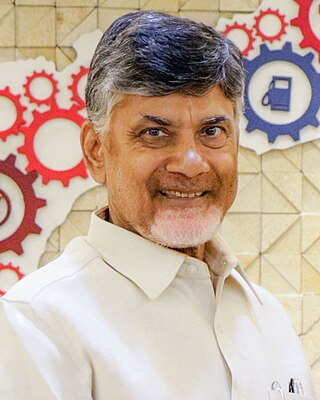
Nara Chandrababu Naidu, also known as Chandrababu Naidu or CBN, is an Indian politician, statesman and the current leader of the opposition in the Andhra Pradesh Legislative Assembly. He also served as Chief Minister from 1995 to 2004 and as opposition leader from 2004 to 2014 of Andhra Pradesh. He has been the national president of the Telugu Desam Party (TDP) since 2015.

The Communist Party of India (Marxist) (abbreviated as CPI(M)) is a communist political party in India. It is the largest communist party in India in terms of membership and electoral seats, and one of the national parties of India. The party was founded through a splitting from the Communist Party of India in 1964 and it quickly became the dominant fraction.

The Telugu Desam Party is an Indian regional political party with great influence in the states of Andhra Pradesh and Telangana. It was founded by the former chief minister of Andhra Pradesh N. T. Rama Rao (N.T.R.) on 29 March 1982 and has focused on supporting Telugu speakers. The party has won a five-time majority in the Andhra Pradesh Legislative Assembly and has emerged as the most successful political outfit in the state's history. It is currently the main opposition party in the Andhra Pradesh Legislative Assembly.

General elections were held in India in four phases between 20 April and 10 May 2004. Over 670 million people were eligible to vote, electing 543 members of the 14th Lok Sabha. Seven states also held assembly elections to elect state governments. They were the first elections fully carried out with electronic voting machines.
In the beginning of 19th century, Lord William Bentinck, then-Governor-general speculated that the possibility of vast change occurring in the frame of society would eventually lead to the British leaving the country under capable Indian rule. But he also added that such changes should not be expected for centuries to come, thus giving justification to the despotic rule by British in the meantime. Mid-century liberals like John Stuart Mill provided the ideological basis for such tendencies.
India has a parliamentary system as defined by its constitution, with power distributed between the union government and the states. India's democracy is the largest democracy in the world.

Krishan Kant was an Indian politician who served as the tenth vice president of India from 1997 until his death in 2002. Prior to his vice presidency, Kant was the governor of Andhra Pradesh from 1990 to 1997. He was a member of both houses of the Indian Parliament, representing Chandigarh in the Lok Sabha from 1977 to 1980, and Haryana in the Rajya Sabha from 1966 to 1977.
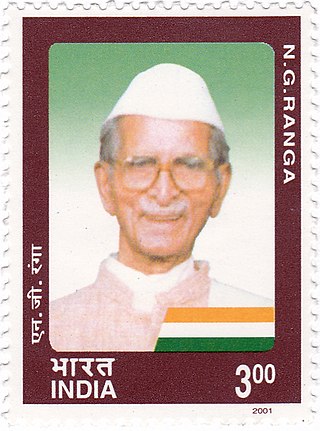
Acharya Gogineni Ranga Nayukulu, also known as N. G. Ranga, was an Indian freedom fighter, classical liberal, parliamentarian and farmers' leader. He was the founding president of the Swatantra Party, and an exponent of the peasant philosophy. He received the Padma Vibhushan award for his contributions to the Peasant Movement. N.G. Ranga served in the Indian Parliament for six decades, from 1930 to 1991.

Lok Satta is a classical liberal political party in India, founded by Nagabhairava Jaya Prakash Narayana, a former I.A.S. officer and renowned activist from Andhra Pradesh. Since 1996, the Lok Satta Movement functioned as a non-governmental organisation, but on 2 October 2006, the movement was reorganised into a formal political party. The party intends to further the causes of the Lok Satta Movement, including a reduction in the size of the cabinet, promotion of the Right to Information Act, and disclosure of criminal records and assets by political candidates. Beginning with the 2009 elections the party has adopted a whistle as their official symbol. On 23 March 2016, the party founder president, Jayaprakash Narayan said that they will not take part in electoral politics for sometime.
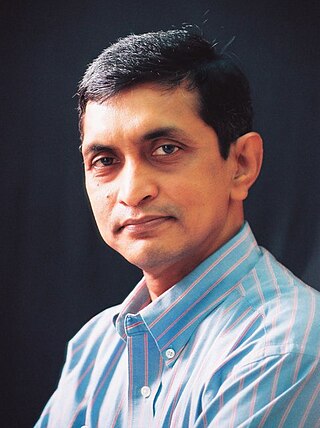
Jaya Prakash Narayana is an Indian liberal politician and activist. He is the founder and president of Lok Satta Party. He served as a Member of the Legislative Assembly from Kukatpally constituency of Andhra Pradesh in India. In May 2014, he contested from Malkajgiri as a Member of Parliament and lost.

Daggubati Purandeswari is an Indian politician from the state of Andhra Pradesh and the State President of the Bharatiya Janata Party, Andhra Pradesh since 2023. She had served as the Minister of State in the Ministry of Human Resource Development in 2009 and MoS in the Ministry of Commerce and Industry in 2012.
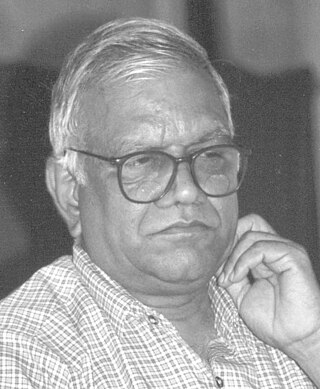
D.V.V.S. Varma was the Working President of the Lok Satta Party for Andhra Pradesh State. He was actively involved in Lok Satta movement from the time of its inception. He has served in various office-bearer positions for the Lok Satta Party. He is also a reputed newspaper columnist and media analyst of political and policy affairs.
The National Commission to review the working of the Constitution (NCRWC), also known as JMNR Venkatachaliah Commission, was set up by a resolution of the Government of India led by Atal Bihari Vajpayee's National Democratic Alliance in February 2000 for suggesting possible amendments to the Constitution of India. It submitted its report in 2002.

Nandamuri Taraka Rama Rao served as Chief Minister of United Andhra Pradesh for three terms, between 1983 and 1995. He was the first person to hold the office while not a member of the Indian National Congress, while representing the Telugu Desam Party (TDP), which he himself founded in 1982. Rama Rao's time in office saw his ousting in an August 1984 coup after 1½ years in office, while he was abroad in the US undergoing coronary heart surgery. He was removed by Thakur Ram Lal, the Governor of Andhra Pradesh, and replaced with Nadendla Bhaskara Rao, the finance minister. Having come back from surgery, Rama Rao regained his position through demonstrating his majority support from members of the Indian Legislative Assembly. He returned to office in September 1984.

Association for Democratic Reforms (ADR) is an apolitical non-partisan nonprofit organisation in India, working on electoral and political reforms for over 25 years.
K G Kannabiran was a human rights activist and a lawyer of the Andhra Pradesh High Court in the Indian state of Andhra Pradesh (AP). He was cofounder and National President of People's Union for Civil Liberties (PUCL).
The Indian state of Telangana was founded in 2014. Its territory had formerly been part of Andhra Pradesh. The Telangana movement was instrumental in the creation of the new state, and Telangana Rashtra Samithi, a party which led the Telangana movement after 2001, formed the government in the Telangana Legislative Assembly under Chief Minister K. Chandrashekar Rao. The political landscape of Telangana is dominated by the Indian National Congress and the Bharat Rashtra Samithi, with the Bharatiya Janata Party and the All India Majlis-e-Ittehadul Muslimeen being other significant forces.
The Foundation for Democratic Reforms is a non-profit, non-partisan and independent research institution founded by Dr. Jayaprakash Narayan, an Indian Administrative Service officer turned politician and a political activist based in Hyderabad. It is one of India's leading think tanks and scientific research-resource center for studying, formulating and promoting fundamental reforms in political, electoral and governance spheres and in critical areas of state policy. Established in 1996 and located in Hyderabad, it is recognized by the Department of Scientific & Industrial Research (DSIR), Ministry of Science & Technology, Govt. of India.
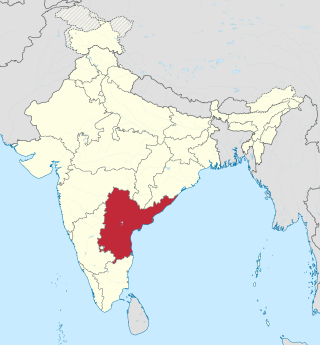
Andhra Pradesh, retrospectively referred to as United Andhra Pradesh, Undivided Andhra Pradesh or Ummadi Andhra Pradesh, was a state in India formed by States Reorganisation Act, 1956 with Hyderabad as its capital and was reorganised by Andhra Pradesh Reorganisation Act, 2014. The state was made up of three distinct cultural regions of Telangana, Rayalaseema, and Coastal Andhra. Before the 1956 reorganisation, Telangana had been part of Hyderabad State ruled by Nizam of Hyderabad, whereas Rayalaseema and Coastal Andhra had been part of Andhra State, formerly a part of Madras Presidency ruled by British India.

Venkatesh Geriti is an Indian classical liberal, anti-corruption activist, and social entrepreneur. He is the founder of Swatantrata Center and India's Future Foundation, an educational organization in Hyderabad, and a scholar at Atlas Summit. Venkatesh received the Karmaveer Chakra Award and Global Fellowship Award in 2019 from the International Confederation of Non-Governmental Organizations in partnership with United Nations. He is a member of the Centre for Civil Society and an alumnus of Foundation for Economic Education., Students For Liberty, Friedrich Naumann Foundation, Liberty International, Atlas Network














